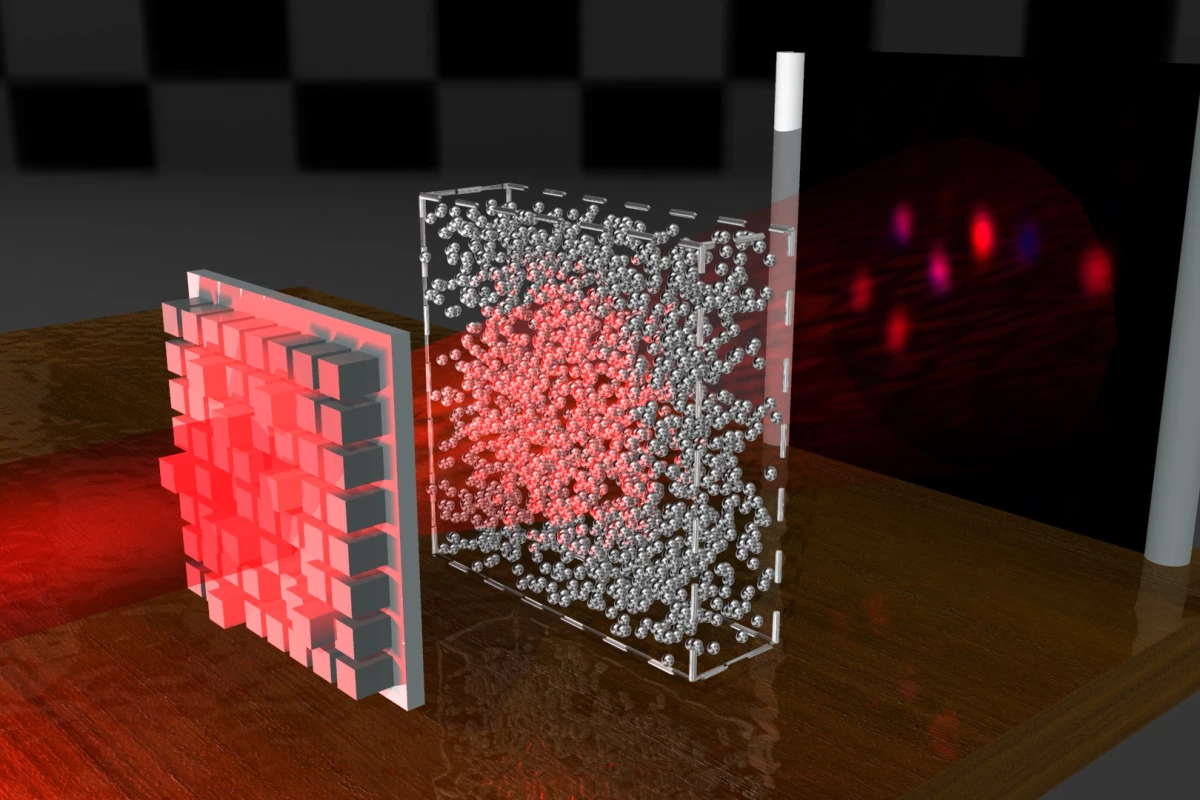Even diffuse objects like clouds or sugar cubes cast shadows, because they’re disordered media that scatter light waves. But now, researchers at TU Wien and Utrecht University have found a way to manipulate light waves to pass through, projecting an image on the other side as clearly as if the obstacle wasn’t there.
A disordered medium is essentially a collection of randomly arranged particles, such as a powder, sand, sugar, or even a cloud. When light enters this group of tiny obstacles it will scatter in an incredibly complex way. But theoretically, if you were able to figure out this scattering pattern, it could be possible to manipulate light waves so that they would pass right on through without scattering.
And now, researchers have managed to do exactly that, using zinc oxide as the scattering medium, with a light source was placed on one side, and a detector on the other.
The first step is to know thy enemy, so the team shone very specific light signals through the powder, then measured how they struck the detector. Using some complex mathematical methods, the pattern of scattering can be determined – and a specific light wave can be designed that wouldn’t change the shape of the wave at all. It only dimmed slightly.
"As we were able to show, there is a very special class of light waves – the so-called scattering-invariant light modes, which produce exactly the same wave pattern at the detector, regardless of whether the light wave was only sent through air or whether it had to penetrate the complicated zinc oxide layer," says Stefan Rotter, co-lead author of the study.
As intriguing as the idea of beaming light through a barrier unimpeded is, the team took it a step further. By combining several scattering-invariant light modes in just the right way, they produced a light wave encoded with an image – in this case, the constellation of the Big Dipper – and projected it onto the detector, through the zinc oxide.
"In this way, at least within certain limits, you are quite free to choose which image you want to send through the object without interference," says Jeroen Bosch, an author of the study. "And indeed, it was possible to determine a scattering-invariant wave that sends an image of the Big Dipper to the detector, regardless of whether the light wave is scattered by the zinc oxide layer or not. To the detector, the light beam looks almost the same in both cases.”
It’s fascinating work, building on the team’s previous experiments in manipulating light waves to camouflage objects like an “invisibility cloak.” This new breakthrough could one day lead to new imaging techniques that safely peer through the body, like X-rays. However, plenty more work will need to be done before such a technology is realized.
The research was published in the journal Nature Photonics.
Source: TU Wien




